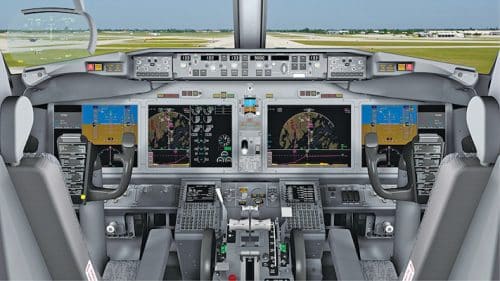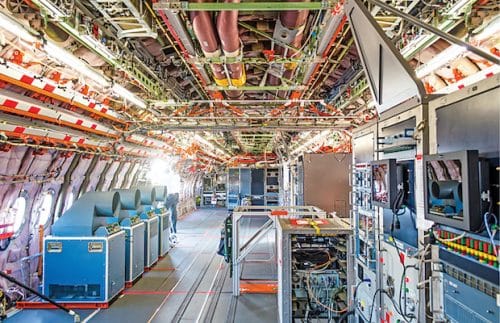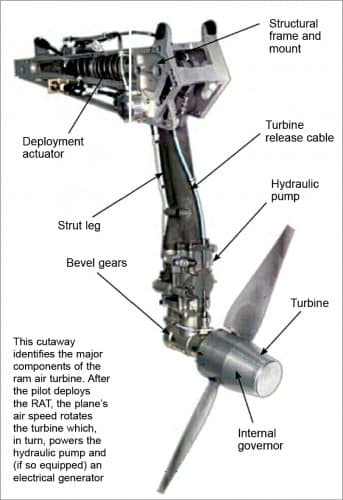This article covers an executive’s perspective on career opportunities available for non-aerospace engineers in the aerospace domain. Most engineering graduates, with any kind of specialisation, can get an opportunity to work in aerospace.
In this article, I have discussed how non-aerospace engineers can work in the aerospace domain and what are the career opportunities available for them. But before we start, I would like to give a little intro about how I ended up working for an aerospace company despite being a student of electronics and communication.

I finished my engineering in 2006 from Anna University in electronics and communication. After completing my degree, I started attending interviews with companies like Infosys, Cognizant, TCS, and Wipro. I faced outright rejections mostly after the aptitude exam, or the first round of interviews. Finally, I got a job with HCL Technologies, and I was assigned to the aerospace domain. I had no idea about this sector.
After my first day at HCL, they started teaching me about airplanes and domains available in the aerospace industry. Once I started gaining knowledge about this industry, it became quite interesting. It’s been 13 years now, and I still continue to work in the aerospace domain with one of the number one aircraft component suppliers in the world.

So, can a non-aerospace engineer work in the aerospace domain? The answer is a big ‘yes.’
Below are the domains that have an enormous amount of opportunities in aerospace:
- Electronics and communication engineering
- Electrical and electronics engineering
- Computer science engineering
- Information technology
- Mechanical engineering
- Controls and instrumentation engineering
- Structural engineering
I will briefly discuss the domains listed above and how these fit into the aerospace domain.
Electronics and communication engineering. As you all know that most of the cockpit displays are electronic. The entire pilot control systems are built on both embedded hardware and software systems. So, if you belong to an electronics engineering field, you might study how to design a circuit board, how displays work, how audio systems work, etc. You may also study about in-flight entertainment. Companies like Collins Aerospace, Boeing, Honeywell, Garmin, and Cirrus make avionics, and you can find a lot of opportunities as an electronics engineer. Also, companies like Thales Avionics, Panasonic Aviation, Zodiac (Safran) are leading inflight entertainment manufacturers, providing a lot of opportunities for electronics engineers.
Electrical engineering
The above-mentioned electronics systems will be directly applicable to electrical engineers too. Apart from electronics, there are a lot of electric systems like engine power control systems, generator control systems, auxiliary power systems, and ram air turbine systems that depend solely on electrical engineering. Electrical wiring is the other part where electrical engineers work most. Aircraft consists of ‘n’ number of wires connecting the devices from the nose to the tail end of the aircraft.

Computer science/IT engineering
Most software run on avionics, and inflight entertainment, is developed by software engineers. Knowing about either the embedded coding language of C, C++, or application software such as VB and .net will help you get a job in the software domain of aerospace. Other advancements happening in the industry include data mining, data analytics, and machine learning. So, if you know Python, there will be great opportunities for you.
IT is not the main domain that directly works in aircraft. But most of the networks inside the companies are operated by IT companies like HP. Also, with the connected ecosystem, there are plenty of opportunities awaiting IT engineers in the aerospace domain too.
Mechanical/structural and instrumentation engineers. As we all know, starting from fuselage and landing gears to electronic cases and seats, all these are designed by electromechanical engineers, where both mechanical and control systems engineers play a vital role. The engine control system is the other major area where most of the talented control and instrumentation/mechanical engineers can pursue their careers.
Conclusion
In summary, most of the engineering graduates with any kind of specialisation can get an opportunity to work in aerospace. The only thing you need to focus on is that when you learn, try to apply real-time examples and learn how those applications are providing the end results.
Sunilkumar Gopakumar is working as a senior engineering manager at Collins Aerospace, USA. He has more than thirteen years of experience in the aerospace industry







